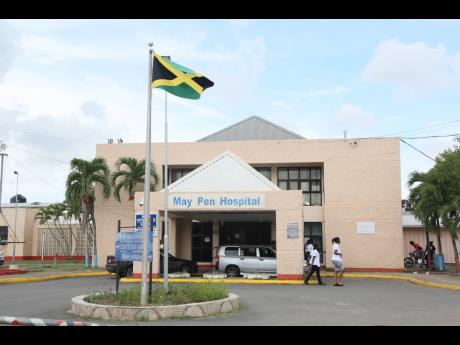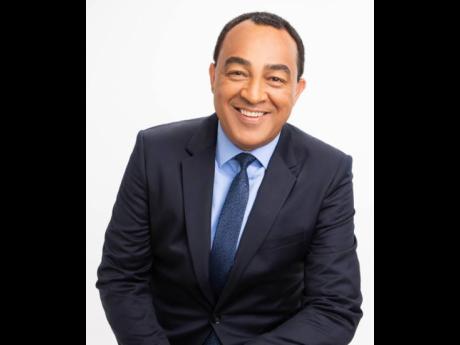Christopher Tufton | On course to transformation in healthcare
THE JOURNEY to the transformation of Jamaica’s health system has been paved with challenges, not the least of these a high level of scepticism and doubt over our ability to succeed, plagued by a too-long history of inertia.
Over the last eight years of my tenure, with the support of the health team and backed by the Government of Jamaica (GOJ), we have turned the corner on this outlook.
To get here, we have had and continue to tackle a variety of legacy boulders – from the chronic lack of maintenance of our health infrastructure over decades that led to the collapse of the Cornwall Regional Hospital to overcrowding in our facilities due to a shortage of beds and too many years of no new hospitals.
Also at play has been increases in lifestyle-linked trauma cases such as heart attacks and strokes, gunshot wounds and bike accidents. These are, together with the reality of periodic outbreaks of infection in hospitals, businesses or communities, requiring an immediate response to remedy the situation.
That it has been hard on the ordinary Jamaican using the health system is not in question. I deeply regret the pressures on the system and the impact on patients and staff alike.
Thankfully, we are seeing blue skies and, while the journey to transformation continues to be peppered by hurdles to overcome, we are making good progress – in the public health interest of all Jamaicans.
PROGRESS MARKERS
Guided by the Vision for Health 2030 Strategic Plan, the Government is on a journey to transformation, and the people of Jamaica are the better for it.
Among other things, we have recorded the largest increase in the health budget since Independence – from $60.15 billion ($55.47 billion recurrent and $4.68 billion capital) in 2016/17 to $145.14 billion ($133.61 billion recurrent and $11.53 billion capital) this year (2024/25). This is a 140.3 per cent increase between 2016/17 and 2024/25.
Through the National Health Fund (NHF), an agency of the Ministry of Health & Wellness, we have provided more drugs than ever before, while also increasing outlets and the number of prescriptions filled.
Also, through the NHF, we have expanded support for diagnostic tests for the early detection of cervical and prostate cancers, with Jamaican female residents who are 21 years and older are now eligible to receive a subsidy to cover the cost of a Pap smear, while males 40 years and older can now access the 1,600 subsidy for a PSA test.
INFRASTRUCTURE
At the same time, we are on course with the build-out of the health system infrastructure – from the redevelopment of the Cornwall Regional Hospital to the construction of the new Western Children and Adolescents Hospital.
We also signed the contract and have broken ground for the long-needed redevelopment of the Spanish Town Hospital, and are giving similar attention to two others – May Pen Hospital and St Ann’s Bay Hospital – all under the Health Systems Strengthening Programme (HSSP).
These are together with 10 health centres, which are also being upgraded as part of the HSSP – financed by the GOJ to the tune of US$87.4 million, the Inter-American Development Bank, to the tune of US$50 million, and the European Union, in the sum of US$10 million.
Of note is that also included as part of the upgrade of these facilities are information, communication and technology upgrades and a move to electronic health records (EHR).
Already, four facilities have gone live with the EHR: May Pen Hospital, Spanish Town Hospital, May West Health Centre, and Mocho Health Centre. Among the benefits of the EHR, which turns on the philosophy of ‘one patient, one record’, are shorter wait times for patients; less cost in providing services; increased productivity; reduced staff frustration; and all-round increased service satisfaction levels.
These benefits are enabled by a patient-registration system for appointment setting and assignment of patients in the triage process of a facility; the seamless interface of critical diagnostic imaging that will enable doctors to see X-rays and CT scans on computers and tablets that have already been provided within these facilities; and the upload and sharing of health records or ‘dockets’ within the public health system, enabling health professionals to trace patient histories and to see the interventions made.
PARTNERSHIPS
An essential element of our success up to now has been the enduring partnership with the people of Jamaica, nurtured by programmes that have captured their attention and helped to inspire collaborative action. They include Jamaica Moves, ‘Do Your Share’, ‘New Limb, New Life’, ‘Second Chance Smiles’, and ‘Know Your Numbers’.
This year, we will continue in those efforts while also introducing ‘Operation Refresh’, to which we are committing a billion dollars. Operation Refresh, which aligns with ongoing efforts at primary care renewal, gives attention to refreshing a number of our health centres; standardising the look and feel, including signage and colour schemes, as well as the introduction of sustainability features such as solar panels, together with improved sanitary conveniences, among other things.
Also, as part of ‘Operation Refresh’, we will provide additional support to our community health aides, to enable more community-based activations, including home visits, and with a focus on seniors and pregnant mothers, as well as the provision of basic psychosocial support.
‘Operation Refresh’ is to be complemented by efforts in other areas, including a new approach to diagnostic services and human resources.
With the acquisition of new diagnostic equipment, including 14 state-of-the-art X-rays, three CT scan machines, and two digital mammograms, we will begin the phase out of the programme for the outsourcing of diagnostic services.
Over the longer term, we will look to realise a lease agreement for the supply, installation, maintenance, training for 49 pieces of medical diagnostic imagining equipment covering computerised tomography (CT) scanners, magnetic resonance imaging (MRI)d and ultrasound.
STAFFING
A health system – no matter the improved infrastructure and technology – is nothing without the team to staff it. Indeed, our people are our most vital resource.
With the creation of new posts and compensation arrangements now in effect, for the most part, we have made some inroads. Still, with mass migration, there remains a risk to the availability of personnel to man the health system. It is against this background that we are this year also introducing the Dr Barry Wint Memorial Scholarship and Development Fund.
With this scholarship and development fund, to which J$2.5 billion has been committed over the next five years at J$500 million a year, we accept that we have to do more to train and retain staff – including that we also train for export and that our efforts will include collaboration with external partners, including institutions outside of Jamaica.
The scholarship will be open to Jamaicans pursuing studies in nursing and medicine, public health, medical technology, epidemiology, health records management, medical physics, hospital/healthcare management, information systems for health, dentistry and health economics – all of which are among the critical groups we need to fill existing and emergent gaps in our human resources.
There are many miles still to travel on this journey of transformation for our healthcare system. However, I feel sure that we will get to the summit, with the continued commitment of the health team and the sustained support and engagement of the people of Jamaica.
Dr Christopher Tufton is Jamaica’s minister of health and wellness and member of parliament for St Catherine West Central. Send feedback to cctufton@gmail.com or columns@gleanerjm.com.


